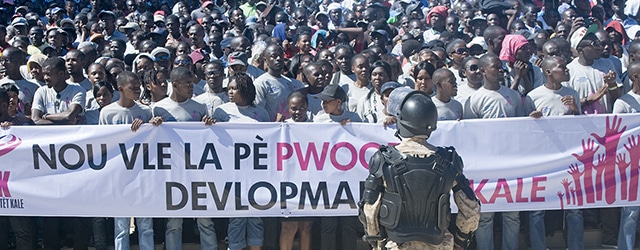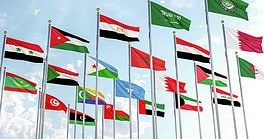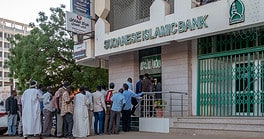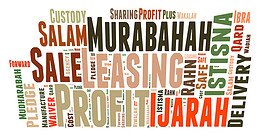Protests rocking Haiti threaten to make a bad economic situation worse.

Haiti continues to lose investor favor amid mounting protests aimed at unseating unpopular President Jovenel Moises.
The situation in the country—the poorest in the Western Hemisphere—has become so dangerous that the U.S. has warned Americancitizens to avoid traveling to the Caribbean nation.
“With spring break right around the corner…Haiti is one vacation spot that Americans should mark off their list of destinations,” U.S. officials were quoted as saying last week.
While the country has enjoyed a fortnight of calm, observers say it is only a matter of time before angry citizens—whose per capita incomes average$250 monthly—return to the streetsto upend Moises’ corrupt government. Throughout February, a cycle of protests, state repression, and riotskilled seven people and injured dozens, forcing many businesses to shutter in the capital of Port Au Prince.
“Protests, tire burning, and road blockages are frequent and unpredictable,” cautions a recent U.S. State Department report.“Violent crime, such as armed robbery, is common. Travelers are sometimes targeted, followed, and violently attacked.”
Tourist revenues have declined sharply, triggering the cancellation of February’s Carnival celebrations (which garnered $5.8 billion in revenues last year). The economy is therefore unlikely to meet its real growth target of 1.5% this year, exacerbating an already worrisome fiscal deficit, observers say.
Amid this backdrop, David Jessop, a consultant for think tank the Caribbean Council, says Haiti’s foreign direct investmentand financing prospects look grim, moving further away from ever becoming investment grade.“They will have to show 2-3 years of stability and statistics that indicate reliable economic growth,” to achieve investment-grade status,he says. “But the problem is, it’s very difficult to know what’s really going on in Haiti.”
However,Jessop says the US’s rising awareness and interest in helping the country could bode well in the near future.
The Trump administration “has actively taken an interest in Haiti in the last few weeks and the French government has made statements showing commitment to the President to sort things out,” he notes.
Whatever the outcome, development banks are pledging more help.
Last week, the IMF agreed to lend the government $221 million at zero interest rates as long as certain milestones are reached. And the Inter-American Development bank (IDB) says its support remains unflinching.
“Haiti is an important country for us as well as the Caribbean so we are not going to drop support,” said an IDB loans executive requesting anonymity.
The IDB recently approved a $125 million grant to help Haiti finance a string of water and sanitation projects.



